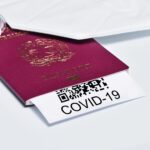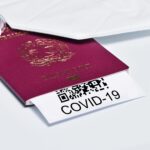Achieving Canadian Permanent Resident (PR) status is a monumental milestone for many, representing a future filled with opportunity and stability in a new home. However, it is a critical misunderstanding to believe this status is unconditional or cannot be revoked. PR status is a privilege that comes with significant responsibilities. Failing to uphold these duties can have devastating consequences, including the loss of your right to live and work in Canada. Understanding the specific grounds for revocation is the first and most crucial step in safeguarding your future. This comprehensive guide outlines the primary ways a permanent resident can lose their status, the formal processes involved, and the proactive measures you can take to protect your hard-earned place in Canada.
The Unforgiving Nature of Canada’s PR Residency Obligation
One of the most common and unforgiving ways to lose permanent resident status is by failing to meet the residency obligation. This is not a vague requirement but a strict, legislated rule under Canada’s Immigration and Refugee Protection Act (IRPA). The rule stipulates that a permanent resident must be physically present in Canada for at least 730 days during the last five-year period. These 730 days do not need to be continuous. The five-year period is also a rolling window, meaning it is assessed from the date an officer is examining your status, looking back five years. This can happen when you apply for a new PR card, apply for citizenship, or seek re-entry into Canada at a port of entry. Failing this test can lead to an officer making a negative determination, which initiates the process of revoking your status. It is a fundamental responsibility that IRCC takes very seriously, and ignorance of the law is not considered a valid defense.
While the physical presence requirement is stringent, there are specific, limited exceptions where time spent outside Canada can be counted towards the 730 days. These exceptions include:
- Accompanying a Canadian Citizen: Time spent abroad while accompanying a spouse, common-law partner, or parent who is a Canadian citizen.
- Employment with a Canadian Enterprise: Time spent working full-time outside Canada for a Canadian business, the federal public administration, or the public service of a province. The key is that you must be assigned on a temporary basis and the employer must be legitimately Canadian.
- Accompanying an Employed Permanent Resident: Time spent abroad accompanying a permanent resident spouse, common-law partner, or parent who is themselves meeting their residency obligation under the employment exception mentioned above.
It is vital to maintain meticulous records if you believe you fall under one of these exceptions, including travel itineraries, employment contracts, and proof of your relationship to the person you are accompanying. Without robust documentation, an officer may refuse to count your time abroad, placing your PR status in jeopardy.
Navigating the Perilous Waters of Criminal Inadmissibility
Maintaining a clean criminal record is not just good practice; for a permanent resident, it is essential for keeping your status. Committing a crime, either inside or outside of Canada, can render you criminally inadmissible and lead to a deportation order. The IRPA distinguishes between regular criminality and “serious criminality,” with the latter having more severe and immediate consequences. Serious criminality is defined as being convicted of an offence in Canada punishable by a maximum prison term of 10 years or more, or committing an act outside Canada that, if committed in Canada, would equate to such an offence. A finding of serious criminality results in the loss of the right to appeal the deportation order to the Immigration Appeal Division (IAD) on humanitarian and compassionate grounds.
Even crimes that do not meet the threshold for serious criminality can lead to inadmissibility. For instance, being convicted of an indictable offence in Canada or two summary conviction offences not arising from a single event can also trigger inadmissibility proceedings. This means that what might seem like minor offences can accumulate and have profound immigration consequences. It is imperative for permanent residents to understand that the Canadian criminal justice system and the immigration system operate in parallel but with different objectives. A criminal sentence, such as a fine or probation, does not negate the potential for immigration consequences, including the revocation of PR status. Any interaction with law enforcement that results in a charge should be treated with extreme gravity and legal advice from an immigration professional should be sought immediately.
Misrepresentation: The Critical Mistake That Can Erase Your Canadian Dream
Honesty and transparency are the cornerstones of the Canadian immigration system. Any attempt to deceive or mislead immigration authorities is considered misrepresentation, one of the most serious immigration offences. Misrepresentation involves directly or indirectly providing false information or withholding material facts related to your application. This could include falsifying work experience or education credentials, using fraudulent documents, failing to declare all family members, or entering into a marriage of convenience. The critical point is that misrepresentation can be discovered years, or even decades, after you have become a permanent resident. The passage of time does not protect you from the consequences.
If IRCC determines that you gained your status through misrepresentation, the consequences are severe. Your permanent resident status can be revoked, you will be issued a deportation order, and you will be banned from re-entering Canada for a period of five years. This is not a matter that can be easily appealed on humanitarian grounds. The government takes a hard-line stance because misrepresentation undermines the integrity of the entire immigration program. It is a stark reminder that the duty of candour to immigration officials does not end once you receive your PR card. Any subsequent application, such as for citizenship or to sponsor a family member, can bring previous applications under scrutiny. Therefore, ensuring every piece of information provided to IRCC throughout your immigration journey is complete and truthful is absolutely paramount to securing your long-term future in Canada.
The Formal Process: What Happens When Your PR Status is at Risk?
Losing PR status is not an arbitrary or immediate event; it follows a formal, structured legal process. The first step typically involves an officer from either Immigration, Refugees and Citizenship Canada (IRCC) or the Canada Border Services Agency (CBSA) preparing an Inadmissibility Report. This report details the allegations and the specific sections of the IRPA that you have allegedly contravened, whether it’s for failing the residency obligation, criminality, or misrepresentation. This report is then referred to the Immigration Division (ID) of the Immigration and Refugee Board (IRB), an independent administrative tribunal.
You will be summoned for an Admissibility Hearing before an ID member, who acts as a decision-maker. At this hearing, the government’s representative will present the case against you, and you (or your legal counsel) will have the opportunity to respond and present your own evidence. The ID member’s role is to determine, based on the evidence, whether the allegations are founded. If you are found to be inadmissible, the ID will issue a Removal Order. For permanent residents, this is almost always a Deportation Order, which carries a lifetime ban on returning to Canada unless you receive a special Authorization to Return to Canada (ARC). For certain cases, such as failing the residency obligation, you may have the right to appeal the decision to the Immigration Appeal Division (IAD). The IAD can consider humanitarian and compassionate factors, offering a final chance to retain your status. However, this appeal right is often stripped away in cases of serious criminality.
Key Takeaways: Proactive Steps to Safeguard Your Permanent Resident Status
Protecting your permanent resident status requires diligence and a clear understanding of your obligations. While the rules can seem complex, following a few key principles can prevent most issues from ever arising. Here are the essential steps every permanent resident should take:
- Meticulously Track Your Days in Canada: Keep a detailed travel log with all entry and exit dates. Use a spreadsheet or a dedicated app to track your physical presence. This is your primary evidence for meeting the residency obligation.
- Understand and Document Any Exceptions: If you must be outside Canada for an extended period, ensure your situation falls squarely within one of the legal exceptions. Collect and preserve all supporting documents, such as employment contracts, pay stubs, and proof of your relationship with a Canadian citizen you are accompanying.
- Remain Law-Abiding: Any criminal charge, no matter how minor it may seem, can have catastrophic immigration consequences. If you are charged with an offence, seek legal advice from both a criminal lawyer and an immigration lawyer immediately.
- Honesty is Always the Best Policy: Never provide false information or omit relevant details in any interaction with Canadian immigration authorities. The risk of being caught for misrepresentation, even years later, is not worth it.
- Renew Your PR Card Proactively: Do not wait until your PR card is about to expire to renew it, especially if you plan to travel. The renewal process is also a residency review, so ensure your documents are in order before applying.
- Consider Canadian Citizenship: The ultimate way to secure your status in Canada is by becoming a citizen. Once you are eligible, applying for citizenship removes the risk of losing your status due to residency or other inadmissibility issues (though citizenship itself can be revoked for fraud).
- When in Doubt, Seek Professional Counsel: Canadian immigration law is complex. If you are facing a difficult situation or are unsure about your obligations, consulting with an experienced immigration professional can provide clarity and help you navigate the process correctly.
Frequently Asked Questions (FAQs)
What is the physical presence requirement for Canadian PRs?
The physical presence requirement, also known as the residency obligation, mandates that a permanent resident must be physically in Canada for at least 730 days within any five-year period. This is a fundamental condition for maintaining your PR status.
How can a criminal record lead to losing my PR status?
A criminal conviction, whether in Canada or abroad, can make you inadmissible to Canada. A conviction for a crime deemed “serious criminality” (punishable by a maximum term of 10 years or more in Canada) can lead to a deportation order and the loss of your right to appeal. Other criminal convictions can also trigger inadmissibility proceedings.
What constitutes misrepresentation in an immigration application?
Misrepresentation involves providing false information or withholding important facts from immigration officials. This can include anything from using fraudulent documents and faking work experience to not disclosing all family members. It is a severe offence that can lead to the revocation of your PR status and a five-year ban from Canada.
What happens if I don’t meet my residency obligation?
If an immigration officer determines you have not met the 730-day residency obligation, they can issue a negative determination. This will lead to an inadmissibility hearing where a removal order may be issued, resulting in the loss of your permanent resident status. You may have the right to appeal this decision based on humanitarian and compassionate grounds.
Talk to us to find out more. ->
The content above is not intended to provide legal advice or opinions of any kind and may not be used for professional or commercial purposes.







